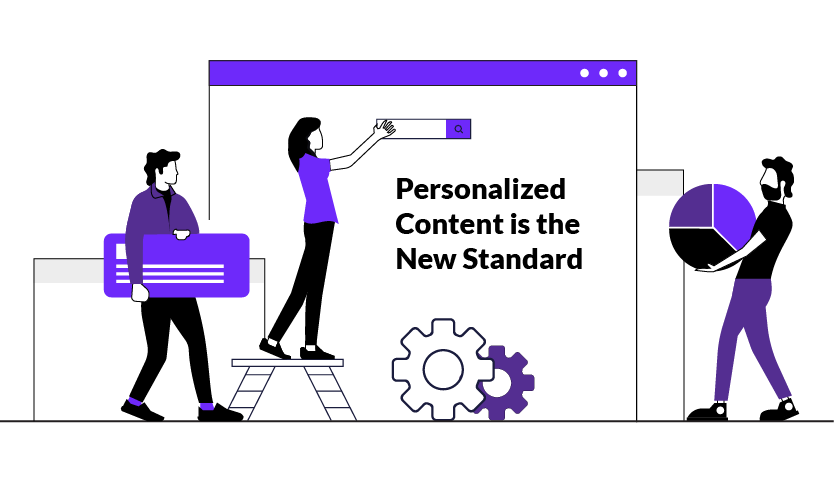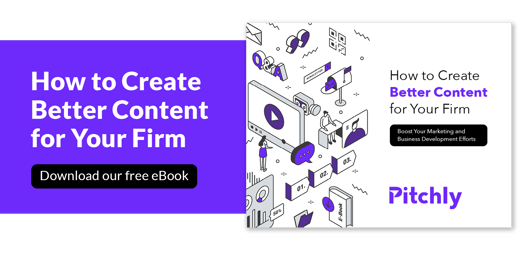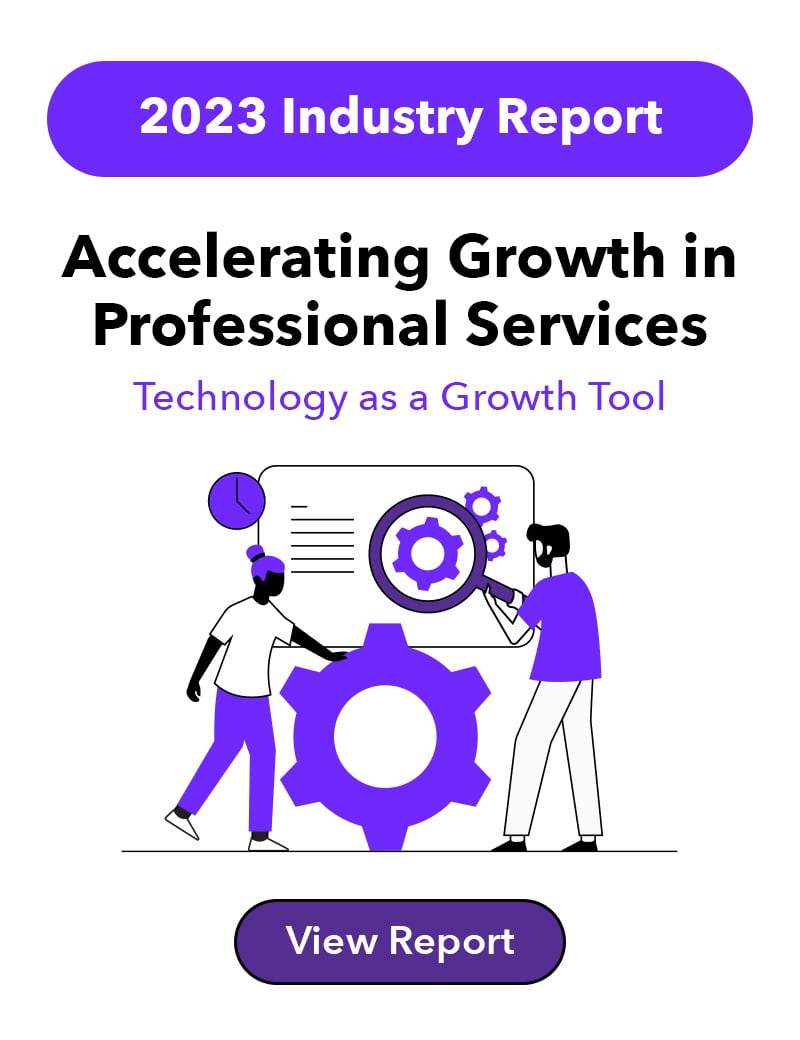Personalized Content is The New Standard
Every marketer knows content is everything. Content drives new business and engages current clients. But not all content is created the same. Personalized content, or collateral that speaks to the needs of the specific audience you’re talking to, is much more powerful than broadly applicable content.
According to Pitchly’s industry report, “Accelerating Growth in Professional Services 2023: Technology as a Growth Tool,” 74% said that increasing revenue and winning more deals was a primary goal for 2023. Creating personalized content, like pitches and proposals, are a big part of that growth strategy.
When asked about the most successful strategies to achieve growth and revenue goals, 62% of respondents to our industry report said it was proposals and pitch materials and 44% said tombstones and testimonials.
Churning out personalized content should be a goal for all firms this year and every year after.
The Value of Personalized Content
Content personalization is more important than ever.
Consumers changed their digital behaviors during the pandemic, with 75% switching to a new store, product or buying method, according to McKinsey. That change in behavior has continued post-pandemic and consumers expect more.
Now, 71% of consumers expect companies to deliver personalized interactions and 76% get frustrated when this doesn’t happen.
Marketing Content
Custom marketing content is branded content used to communicate with your current clients, according to Neil Patel.
Marketing content includes blog posts, newsletters, video and audio, webinars and downloadable assets, like eBooks, whitepapers and reports.
When creating personalized content for marketing, professional services marketing teams must match characteristics, preferences and behaviors to their audience. Without content personalization, your marketing message might go unheard. Recent research shows that 72% of people will only engage with personalized messaging.
Sales Enablement Content
Sales enablement is another area where customization is key. This includes testimonials, case studies, pitches and proposals.
Every piece of content you create for this purpose should have a clear and direct correlation to the roadblocks or questions your prospect may have at that stage in the funnel.
Content included in pitches and proposals includes tombstones that visually tell the story of past transactional work, bios of team members, brief descriptions of relevant work and links to articles that directly relate to potential engagement.
Showing customers how you’ve solved their issues for others can go a long way toward growing and keeping business. 72% of consumers will only take the next step towards becoming clients if they read a positive review.
Creating personalized content doesn’t mean starting from scratch each time you need to draft a pitch, proposal or email. Repurposing content and making small updates to reflect changes in industry, location, pain points, etc. is a great way to make the most of the content you already have, while still making it feel custom, no matter if it’s marketing content or sales enablement content. Using templates is a great way to repurpose content.
Firms that start with a great template can easily adjust the data to reach a targeted audience.
Tips to Personalize Content
Personalizing content is essential but many firms might not know where to start.
Identify Pain Points
Identifying pain points is one of the best ways to customize content.
Clients are driven to your firm because they have problems that need solutions. Customer pain points can be related to your client’s personal or professional lives. For example, a client that’s spending so much time on manual processes may have to work long hours, leaving little or no time for vacations or other personal time.
As pain points are unique for each client, HubSpot suggests identifying them by:
- Engaging with your clients. Set up AI chatbots on your website that asks targeted questions and listens to responses.
- Asking your client-facing teams. These employees engage with your clients the most and are the best resource to understand what issues they’re facing.
- Analyze client feedback. Go through customer responses and search online reviews to see what your clients are saying about you.
Keep your message on target with the pain points your audience cares about the most. Try to eliminate a strong focus on anything that doesn’t relate to their main pain points and goals.
Leverage Your Data
Personalized content comes from great data.
Your firm’s data can help pinpoint what type of content will resonate with your clients, including previous work your firm has completed. Data from a CRM can help content marketing for professional services teams identify demographic information as well as marketing and business development engagement.
Data can be used in marketing content like automated email campaigns. Automation software can pull data and filter it by criteria for email marketing campaigns, personalizing it along with way.
Data is instrumental in sales enablement content to generate pitch materials, like tombstones and case studies. The ability to quickly leverage data for these materials can make a much bigger impact on a client. Data allows you to show clients exactly how you can help them with their issues and your performance record.
Use Technology to Help You Scale Personalization
Content marketing for professional services requires creating custom pitchbooks and proposals as well as tombstones, testimonials and other pitch materials. Without automation, these essential pieces of marketing content can take much longer to create, taking time away from other essential tasks, like increasing revenue.
Technology can be used to help automate this process. Tools like document automation software can save firms hours of work, boosting productivity. It has been reported that 78% of business leaders believe they could save up to three hours a day or 30 hours a month by automating tasks.
Document automation software can increase efficiency while reducing errors, allowing teams to create personalized content faster. Document automation software, like Pitchly, helps firms put together successful pitches and proposals quickly, beating out the competition.
Pitchly’s data enablement platform leverages your own data so users can quickly create personalized content. Tools like Pitchly’s Elements content creation app enables your data that helps automatically generate sales enablement custom content. This includes:
- Deal tombstones
- Bios
- Case studies
- CVs and more
Personalized content is the future of content creation. If your firm’s marketing and sales enablement content isn’t personally addressing your audience, they might not listen to what you have to say.
Download our eBook, “How to Create Better Content for Your Firm” to learn how to boost your marketing and business development efforts.
 May 30, 2023
May 30, 2023





